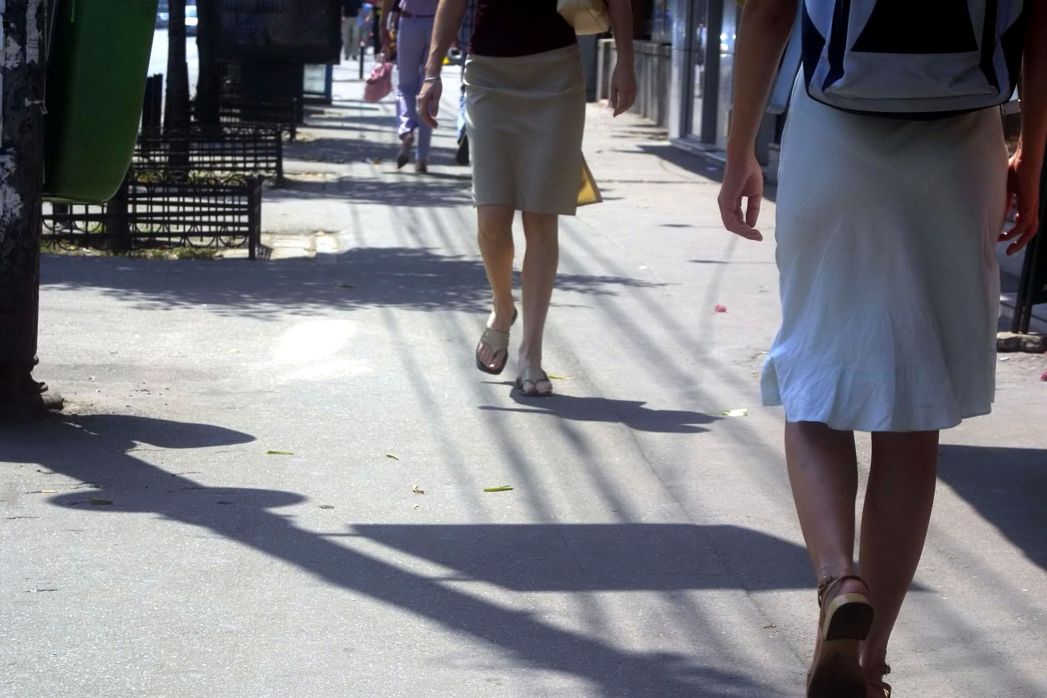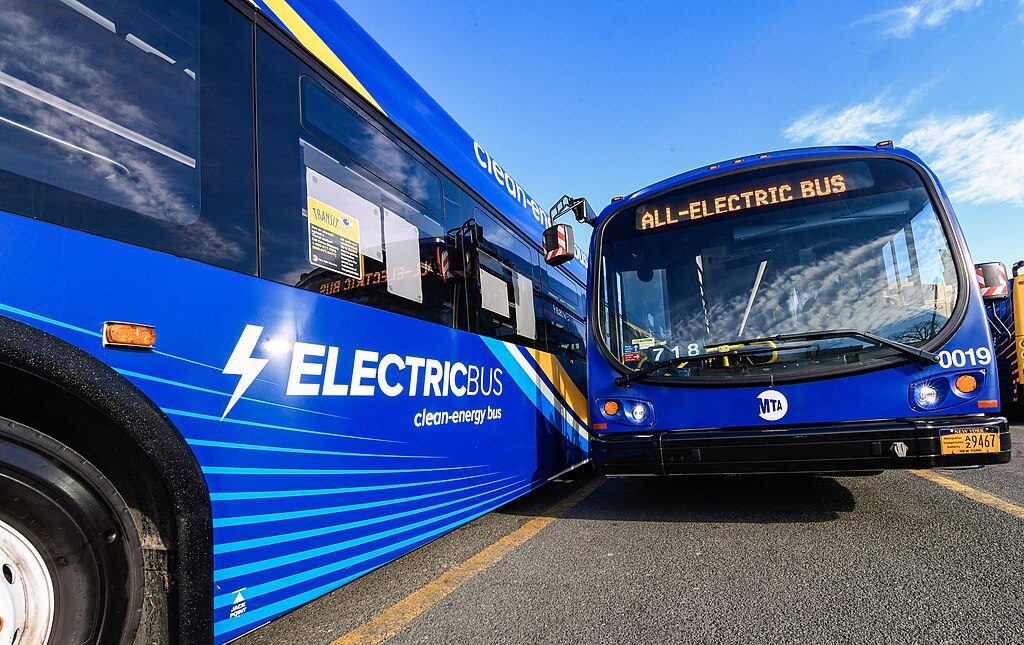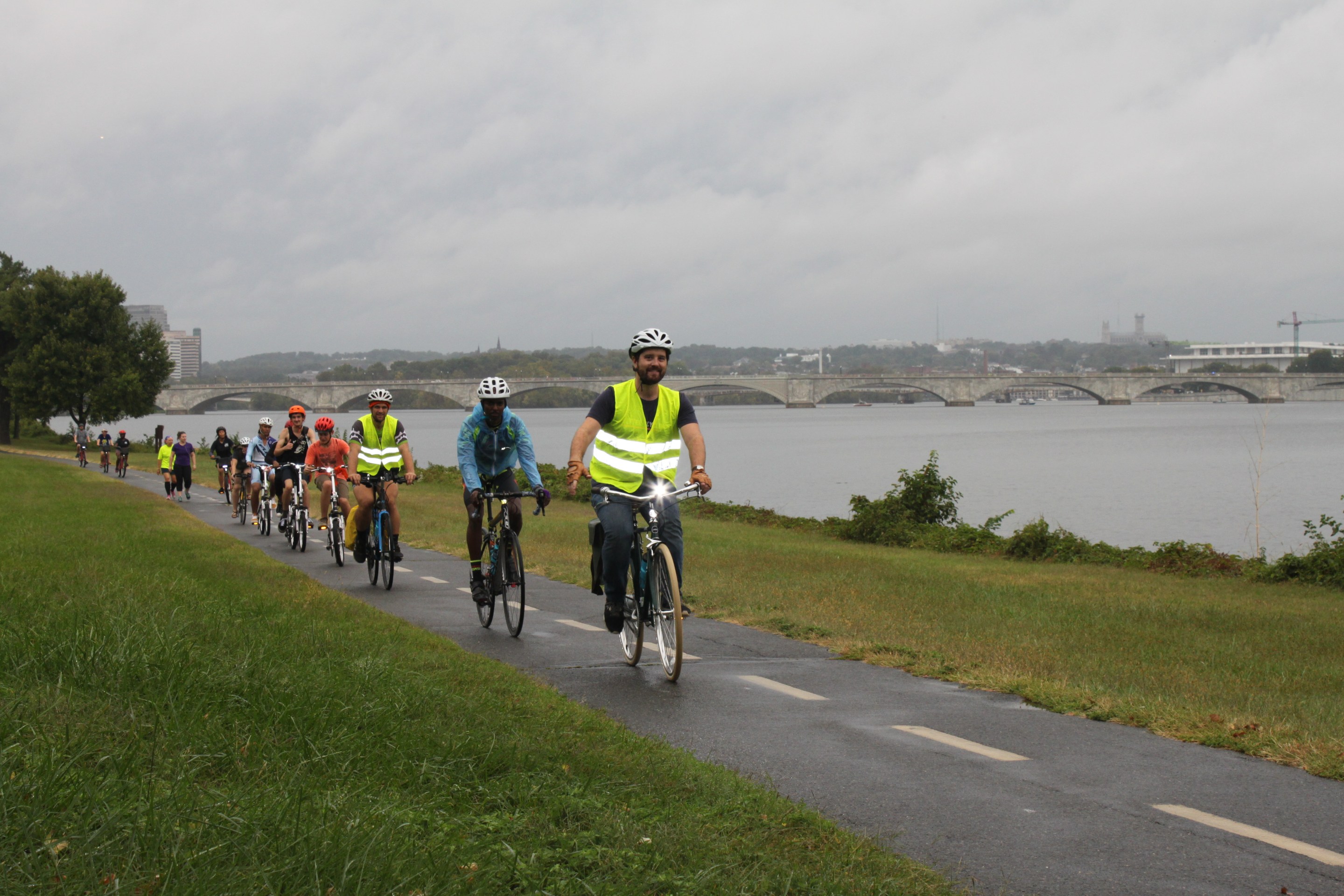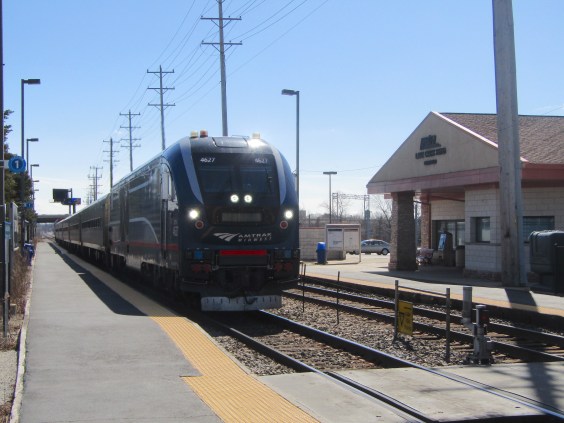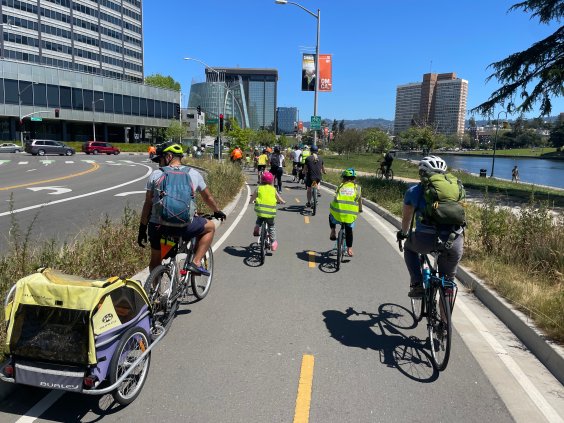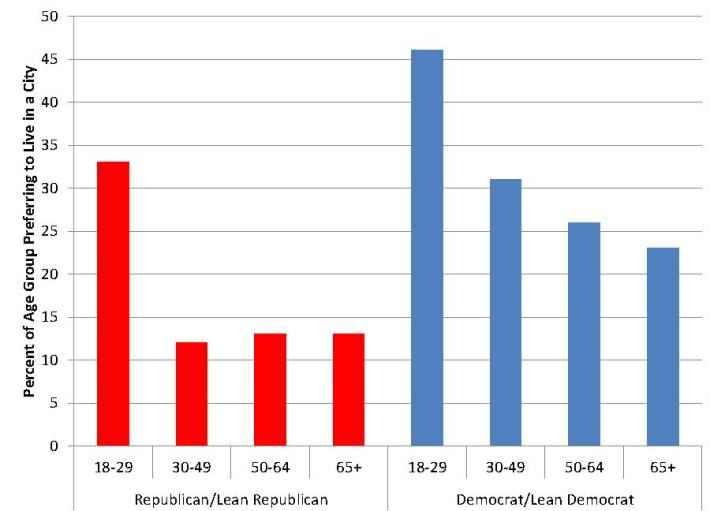
Last week, the Pew Research Center came out with a massive poll on political polarization in the United States. As Angie reported here, one of the main conclusions was that there is a stark divide between liberals and conservatives when it comes to the type of community in which they want to live. Conservative Americans, by and large, prefer living in spread-out rural areas and small towns, while liberals tend to prefer cities.
None of that is too surprising. But the Pew data tell another story, too: young Americans -- both Democrat and Republican -- are far more likely to express a desire to live in cities than older Americans.
When asked, “If you could live anywhere in the United States that you wanted to, would you prefer a city, a suburban area, a small town or a rural area?”, 38 percent of 18- to 29-year-olds said they preferred to live in a city, as opposed to just 23 percent of 30- to 49-year-olds and even smaller proportions of older Americans.
The difference in preference for city living by age group is especially vivid among young Republicans. About one third of 18- to 29-year-old Republicans and Republican “leaners” expressed the desire to live in a city, as opposed to no more than 13 percent of any other Republican age group. In fact, Republicans under 30 are more likely to want to live in a city than Democrats over the age of 30.
There has, of course, been a lot of talk about the degree to which the transportation and housing preferences of the Millennial generation diverge from those of older Americans. We already know that they drive less than previous generations and have expressed a strong willingness to seek out communities with a variety of transportation options.
While there’s a limited amount that we can learn from the Pew survey about changes in trends among young people, given the lack of comparable survey data from previous years, the data do raise some intriguing possibilities.
The first is that that the forces leading young people to seek out city living may be bipartisan and broad-based. If cities are appealing to young people of a variety of political and cultural preferences, one might expect the recent drive toward city living to be more durable than if it were being driven mainly by a single demographic group or cultural “tribe.”
Second, the data raise the possibility that, at a time when partisan divisions seem to be growing ever wider, the stark partisan divide over community preferences may be eroding. That would be something to celebrate. The dramatic changes we need to make in transportation and other national policies to support the development of sustainable and resilient cities are only possible if the pattern of political polarization described so powerfully by the Pew data can be broken. By speaking up for the importance of cities within the Republican Party and bringing their own policy ideas to the table, young, urban conservatives could play an important role in making that happen.
The Pew survey can’t tell us whether today’s young people will carry their attitudes toward city living with them as they age. Still, the data raise the tantalizing prospect that opinions about cities could be transformed by the rising Millennial generation from a point of political conflict to one of cross-partisan consensus -- a development that would have a lasting and positive effect on the transportation debate.
Tony Dutzik is senior policy analyst with the Frontier Group, a think tank working on issues of the environment and democracy.
